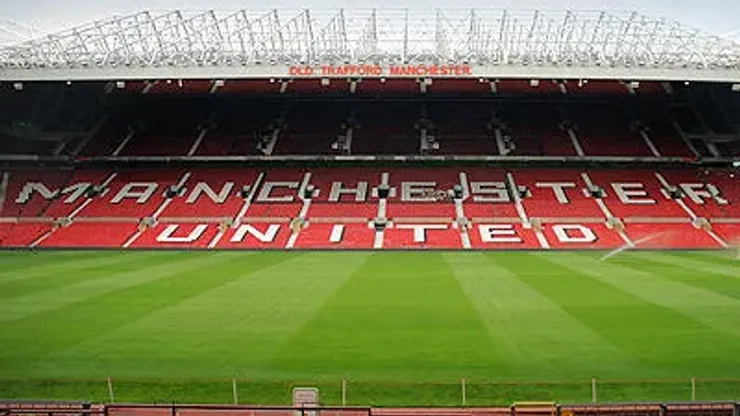Perhaps the defining idea of this era of football, reflective of the rapidly growing interconnectedness of World society, is the multinational team. More or less since the beginning of football, there have been players plying their trade away from the homeland, but only since the inception of the Premier League have we seen football’s horizons broadened to this extent; whole continents dragged together to resemble a sort of footballing Pangaea.
In 2010, the season was dominated by Inter Milan, a team without an Italian in the starting line-up. Meanwhile in London, this past season’s Arsenal side had a strong British presence — for a change. There is an Italian managing England, a Spaniard coaching Wigan and not so long ago an Englishman in the hot seat at FC Twente. In MLS, the NY Red Bulls became the first team to field a starting eleven made up of eleven different nationalities. For the record, they beat the San Jose Earthquakes 3-0.
While most have basked in the stunning football produced by this age of interactivity, the FIFA big wigs have squirmed in their chairs. When not accepting bribes, Blatter and company began the groundwork of instituting a 6+5 policy, limiting foreign influence in teams around the globe. Just last year, following a disgraceful showing by England at the World Cup, clubs were required to name at least eight “homegrown” players in their twenty-five man Premier League squads; an attempt to rehabilitate the English national team which is doomed to failure.
Sensing surely, the changing tide of football regulations, it is no surprise that the wiliest man in the game has already stolen a march on his rivals. In a summer which will likely be one of reconstruction for Sir Alex Ferguson’s Manchester United, the framework has been set for a very British XI, one that could drive the Devils on for years to come.
On Wednesday, United agreed a fee for English central defender Phil Jones, a man dubbed by many as a future England captain. Having signed young center half Chris Smalling last year, it is clear that Fergie intends to build a new core of British talent, one which he is likely to mold his team around.
If the papers are to believed, next up on Ferguson’s hit list is another Englishman: Ashley Young. If Young does come in, then Nani’s so often brilliant, yet too often frustrating Manchester United career could come to an end. That switch would represent another part of Fergie’s attempt to build towards six plus five compliance, the two players are equal in terms of playing credentials, but only one of them has a British passport.
So as an era of Britishness dies at Old Trafford (in direct correlation with the retirements of Scholes and Neville) it seems as though Fergie is ready to start a new one. The signings of Young and Jones are only part of Ferguson’s plan though, as ever, there are a few budding youths waiting for a chance to shine on England’s biggest stage. Ravel Morrison has already represented England at three youth levels, and it was his brilliance which inspired the United youth team to FA Cup glory last season. Players such as Will Keane, Oliver Gill and Ryan Tunnicliffe are all also likely to be given first team opportunities in the near future, following in the footsteps of more established youngster like Tom Cleverley and Danny Welbeck.
Over the years, Ferguson has proved his ability to build and rebuild teams, adjust to new circumstances and change with the changing tides of football; after all, it isn’t just Scottish stubbornness which has kept him in the game for so long. Now, at sixty-nine years old, Sir Alex is showing no sign of letting up as he builds for the future, building for six plus five.
Read more by David Yaffe-Bellany at www.inforthehattrick.blogspot.com
200+ Channels With Sports & News
- Starting price: $33/mo. for fubo Latino Package
- Watch Premier League, Women’s World Cup, Euro 2024 & Gold Cup
The New Home of MLS
- Price: $14.99/mo. for MLS Season Pass
- Watch every MLS game including playoffs & Leagues Cup
Many Sports & ESPN Originals
- Price: $10.99/mo. (or get ESPN+, Hulu & Disney+ for $14.99/mo.)
- Features Bundesliga, LaLiga, Championship, & FA Cup
2,000+ soccer games per year
- Price: $5.99/mo
- Features Champions League, Serie A, Europa League & Brasileirāo
175 Premier League Games & PL TV
- Starting price: $5.99/mo. for Peacock Premium
- Watch 175 exclusive EPL games per season






